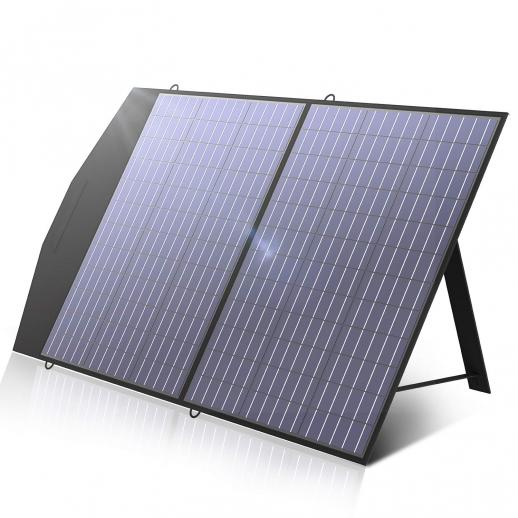How Much Do Solar Panels Increase Home Value?
The integration of solar panels into residential properties has become a popular trend, driven by the dual benefits of reducing energy costs and promoting environmental sustainability. However, one of the most compelling reasons homeowners consider installing solar panels is the potential increase in property value. This article delves into the various factors that influence how much solar panels can increase home value, providing a comprehensive understanding for homeowners contemplating this investment.

Understanding the Value Proposition of Solar Panels
Solar panels offer a range of benefits that can enhance the value of a home. These benefits include:
1. Energy Cost Savings: Solar panels can significantly reduce or even eliminate electricity bills, which is a major selling point for potential buyers.
2. Environmental Impact: Homes with solar panels appeal to environmentally conscious buyers who prioritize sustainability.
3. Government Incentives: Various federal, state, and local incentives can offset the initial cost of installation, making solar panels a more attractive investment.
4. Energy Independence: Solar panels provide a degree of energy independence, which can be particularly appealing in areas prone to power outages.
Quantifying the Increase in Home Value
Several studies and real estate market analyses have attempted to quantify the increase in home value attributed to solar panel installations. The findings generally indicate a positive correlation, though the exact increase can vary based on several factors:
1. Location: The impact of solar panels on home value can vary significantly by region. In areas with higher electricity rates and more sunlight, the increase in home value tends to be more substantial.
2. System Size and Quality: Larger and higher-quality solar panel systems typically contribute more to home value. Buyers are willing to pay a premium for systems that promise greater energy savings.
3. Market Conditions: The overall real estate market conditions can influence how much value solar panels add to a home. In a seller's market, the increase might be more pronounced.
4. Age of the System: Newer solar panel systems are more likely to add value compared to older systems, which may require maintenance or upgrades.
Research Findings
A study by the Lawrence Berkeley National Laboratory found that, on average, solar panels add about $15,000 to the value of a home. This figure can vary based on the factors mentioned above. Another study by Zillow reported that homes with solar panels sold for 4.1% more on average than comparable homes without solar panels.
Case Studies and Real-World Examples
To provide a more concrete understanding, let's look at some real-world examples:
1. California: In California, where electricity rates are high and there is abundant sunshine, homes with solar panels have been shown to sell for a premium. A study by the National Renewable Energy Laboratory (NREL) found that homes with solar panels in California sold for an average of $20,000 more than homes without them.
2. New York: In New York, where state incentives for solar installations are robust, homes with solar panels also see a significant increase in value. A report by the New York State Energy Research and Development Authority (NYSERDA) indicated that solar panels could add up to 5% to the value of a home.
3. Texas: In Texas, where energy independence is highly valued due to frequent power outages, homes with solar panels have been shown to sell faster and at a higher price. A study by the Texas Real Estate Research Center found that solar panels could add up to 3.5% to the value of a home.
Factors Influencing Buyer Perception
While the data supports the notion that solar panels increase home value, buyer perception plays a crucial role. Here are some factors that influence how buyers perceive the value of solar panels:
1. Energy Savings: Buyers are more likely to value solar panels if they can see clear evidence of energy savings. Providing utility bills that show reduced costs can be a persuasive selling point.
2. Aesthetics: The visual appeal of solar panels can influence buyer perception. Modern, low-profile panels that blend with the roofline are generally more appealing.
3. Maintenance and Warranties: Buyers are more likely to see value in solar panels if they come with warranties and require minimal maintenance. Providing information on the system's warranty and expected lifespan can alleviate concerns.
4. Financing Options: The method of financing the solar panel installation can also impact buyer perception. Owned systems are generally more attractive than leased systems, as they do not come with ongoing financial obligations.
Practical Considerations for Homeowners
For homeowners considering solar panel installation, several practical considerations can help maximize the increase in home value:
1. Choose the Right System: Investing in a high-quality solar panel system with a good warranty can enhance the value added to your home.
2. Take Advantage of Incentives: Research and utilize available government incentives to reduce the initial cost of installation.
3. Maintain Documentation: Keep detailed records of the installation, maintenance, and energy savings to provide to potential buyers.
4. Consider Aesthetics: Opt for solar panels that complement the design of your home to enhance curb appeal.
The installation of solar panels can be a wise investment for homeowners looking to increase the value of their property. While the exact increase in home value can vary based on location, system size, market conditions, and buyer perception, the overall trend is positive. By understanding the factors that influence the value added by solar panels and taking practical steps to maximize this value, homeowners can make informed decisions that benefit both their finances and the environment.
